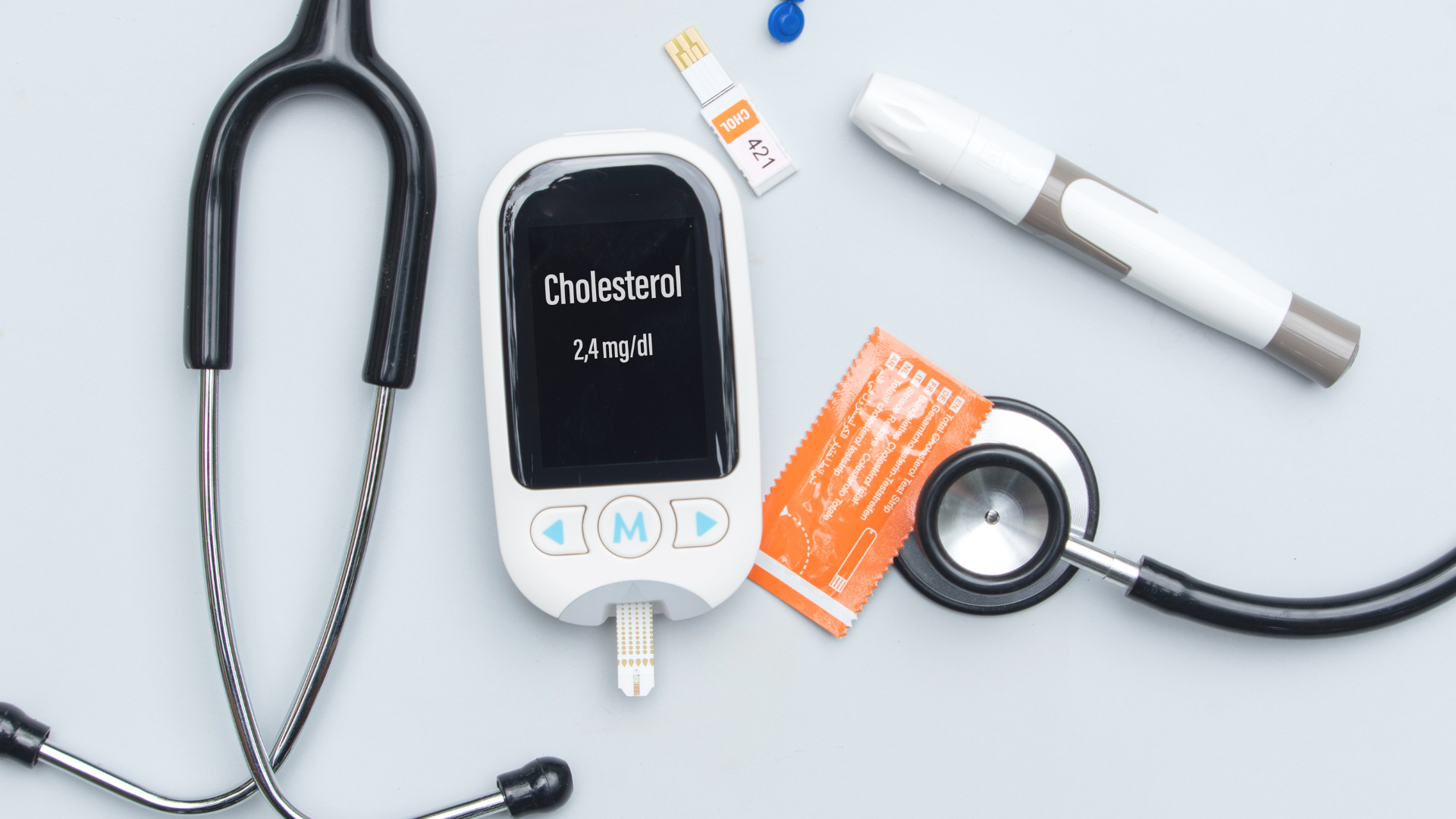Introduction
If you’ve noticed that stress hits differently after 40 — and that belly fat and sugar cravings seem harder to control — you’re not imagining it. The transition through perimenopause and menopause triggers complex hormonal changes that alter how your body stores fat and manages stress.
At the heart of this transformation lies the estrogen–cortisol connection. When estrogen levels fall and cortisol (the stress hormone) rises, your metabolism, mood, and appetite all shift — often in ways that make weight management feel like an uphill battle.
Let’s explore why menopause stress leads to belly fat accumulation and increased cravings, how the hormones interact, and what you can do to restore balance naturally.
Understanding Estrogen and Cortisol: The Hormonal Balancers
Estrogen: The Multi-Tasking Regulator
Estrogen isn’t just a reproductive hormone. It affects:
- Metabolism and fat distribution
- Insulin sensitivity and blood sugar control
- Mood regulation
- Appetite and energy levels
During menopause, estrogen levels decline sharply. This shift affects nearly every system in the body, including how efficiently we burn fat and manage stress.
Cortisol: The Stress Hormone
Cortisol is produced by the adrenal glands in response to stress. In small amounts, it’s helpful — giving us the energy to deal with challenges. But when cortisol stays high for long periods (due to chronic stress, lack of sleep, or hormonal imbalance), it leads to:
- Increased fat storage (especially around the belly)
- Sugar and carb cravings
- Mood swings, anxiety, and fatigue
- Sleep disruption
Now, when estrogen drops and cortisol rises — as happens during menopause — the body enters a stress-metabolism loop that promotes belly fat gain and emotional eating.
The Estrogen–Cortisol Connection Explained
Estrogen and cortisol are like dance partners — when one moves out of rhythm, the other follows. Here’s how their imbalance plays out:
1. Lower Estrogen Weakens Cortisol Control
Estrogen helps regulate the body’s stress response by keeping cortisol levels in check. When estrogen declines during menopause, cortisol can surge more easily and stay elevated longer after stress.
This leads to chronic low-grade stress, even without obvious triggers — making women feel “wired but tired.”
2. High Cortisol Promotes Belly Fat
Cortisol signals the body to store energy — particularly as visceral fat (deep belly fat). Evolutionarily, this was a survival mechanism during famine or danger. But in today’s world, chronic stress from work, family, or hormonal changes triggers the same fat-storing response, especially around the abdomen.
3. Estrogen Decline Reduces Fat-Burning Efficiency
Estrogen helps your body burn fat for energy. With less of it, your metabolism slows down, muscle mass declines, and fat storage increases — particularly in the midsection. The combination of low estrogen and high cortisol is a perfect storm for belly fat gain.
4. Cortisol and Blood Sugar Instability
Elevated cortisol raises blood sugar by prompting the liver to release glucose for “fight or flight.” Over time, this causes insulin resistance, leading to energy crashes, cravings, and fat accumulation.
5. Cravings and Emotional Eating
Cortisol also activates the brain’s reward system — making high-carb, sugary, or fatty foods seem more appealing. Add fluctuating estrogen (which affects serotonin and dopamine), and emotional eating becomes a comfort mechanism for stress and fatigue.
Signs of Estrogen–Cortisol Imbalance During Menopause
You might be experiencing this hormonal tug-of-war if you notice:
- Weight gain around the belly
- Intense sugar or carb cravings
- Difficulty losing weight despite healthy habits
- Frequent fatigue or afternoon energy crashes
- Mood swings, irritability, or anxiety
- Sleep issues — especially waking up between 2–4 a.m.
- Brain fog or poor concentration
If these symptoms sound familiar, your body might be signaling that your stress and sex hormones are out of sync.
How Menopause Stress Fuels Belly Fat and Craving
Let’s break it down into two interconnected effects:
1. The “Belly Fat” Effect
- Lower estrogen = slower metabolism
- Higher cortisol = more fat storage
- Insulin resistance = easier fat gain
This combination redirects fat storage to the abdominal area, increasing visceral fat that’s not only stubborn but also linked to higher risks of heart disease and diabetes.
2. The “Cravings” Cycle
When cortisol rises, serotonin (your “happy hormone”) drops, triggering the urge for quick-energy comfort foods like chocolate, chips, or sweets. These foods cause a short-term serotonin boost — followed by a blood sugar crash, leading to another craving episode.
It’s a loop that feeds both emotional stress and weight gain.
Breaking the Estrogen–Cortisol Cycle: Natural Strategies
The goal isn’t to eliminate stress — but to regulate your body’s response to it. Here are proven ways to restore hormonal harmony:
1. Manage Stress Intentionally
Adopt calming practices that lower cortisol naturally:
- Meditation and mindfulness — Just 10 minutes daily can reset stress hormones.
- Deep breathing or yoga — Activates the parasympathetic nervous system, reducing cortisol.
- Nature walks or light exercise — Help release built-up tension.
- Creative hobbies or journaling — Channel emotions productively.
2. Eat to Balance Hormones
Focus on foods that stabilize blood sugar and support hormone production:
- High-protein meals (fish, eggs, legumes) to keep cravings in check.
- Healthy fats (avocado, nuts, olive oil) to support estrogen balance.
- Fiber-rich veggies to reduce insulin spikes.
- Limit refined carbs and sugary foods, which fuel the cortisol–insulin cycle.
Try the “plate balance rule”: half veggies, one-quarter lean protein, one-quarter whole grains.
3. Get Quality Sleep
Poor sleep elevates cortisol and disrupts estrogen metabolism.
- Maintain a consistent bedtime.
- Keep your bedroom cool and dark to manage hot flashes.
- Avoid screens an hour before bed — blue light interferes with melatonin.
Aim for 7–8 hours of deep, restorative sleep to reset your hormones.
4. Exercise Smart — Not Hard
Over-exercising can raise cortisol levels, especially during menopause. Opt for:
- Strength training (2–3 times a week) to build muscle and boost metabolism.
- Low-impact cardio like walking or cycling.
- Stretching or Pilates to reduce tension.
Remember: consistency matters more than intensity.
5. Support Adrenal Health
Your adrenal glands produce cortisol — and they need support too.
- Include B vitamins, magnesium, and vitamin C in your diet.
- Avoid excessive caffeine or alcohol.
- Practice daily rest periods, even short ones, to reset your system.
6. Consider Professional Support
If symptoms persist, consult a healthcare professional about checking:
- Hormone levels (estrogen, progesterone, cortisol)
- Thyroid and insulin markers
In some cases, bioidentical hormone therapy or herbal adaptogens (like ashwagandha or maca) may help under professional guidance.
Embracing Balance After 40
Menopause doesn’t have to mean weight gain, exhaustion, and cravings. It’s a period of transformation — a time to realign your body and mind. Understanding the estrogen–cortisol connection empowers you to work with your hormones, not against them.
When you prioritize stress management, balanced nutrition, movement, and rest, you can reclaim hormonal balance, reduce belly fat, and regain your natural vitality.
Conclusion
The estrogen–cortisol connection explains why many women over 40 experience stress-related weight gain and sugar cravings. As estrogen declines, cortisol levels become harder to control, leading to belly fat storage, emotional eating, and fatigue.
But this cycle isn’t permanent — with mindful living, nutritious eating, and consistent stress management, you can reset your hormones and restore both physical and emotional balance. Menopause is not a decline — it’s a powerful invitation to slow down, nourish yourself, and embrace your body’s new rhythm.
FAQs
1. Why does menopause cause belly fat even when I eat healthy?
Lower estrogen and higher cortisol shift fat storage toward the abdomen, even if your diet hasn’t changed.
2. Can stress alone cause menopause weight gain?
Chronic stress raises cortisol, which promotes fat storage and insulin resistance — making weight gain more likely, especially around the belly.
3. How long does it take to balance cortisol naturally?
It can take a few weeks to months of consistent lifestyle changes (stress reduction, sleep, diet) to see significant improvements.
4. Does hormone replacement therapy (HRT) help reduce belly fat?
In some women, HRT can improve insulin sensitivity and fat distribution, but it should be prescribed based on individual health needs.
5. Can meditation or yoga really help with cravings?
Yes. Mindfulness practices lower cortisol and reduce emotional eating by calming the brain’s stress response.





